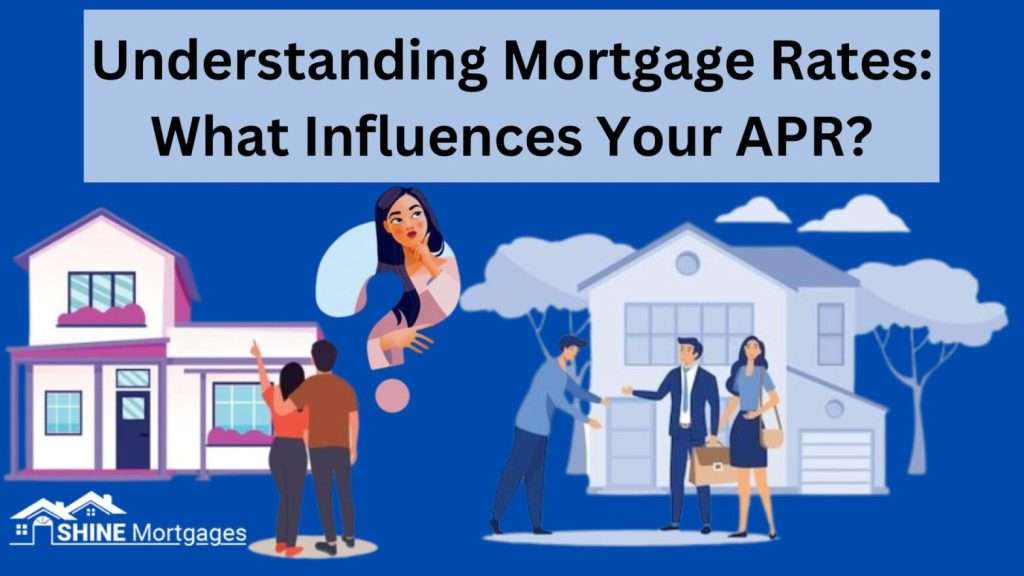Understanding Your Mortgage APR
Unlock the secrets of your mortgage APR! Don’t let hidden fees surprise you. Understand the true cost of your home loan and make smarter financial decisions. Learn about APR now!

Understanding the Annual Percentage Rate (APR) on a mortgage is crucial for making informed financial decisions. It’s more than just the interest rate; it encompasses all costs associated with your loan. This includes points, fees, and other charges, offering a more complete picture of your borrowing costs. Ignoring the APR can lead to unexpected expenses and a higher overall cost of your home loan.
Understanding the Basics of APR
The Annual Percentage Rate (APR) represents the total yearly cost of borrowing money, expressed as a percentage. Unlike the interest rate, which only reflects the interest you pay on the principal loan amount, the APR includes all fees and charges rolled into the loan. These additional costs can significantly impact the overall cost of your mortgage over its lifetime.
For example, a mortgage might advertise an interest rate of 5%, but the APR could be 5.5% due to added fees such as origination fees, discount points, appraisal fees, and insurance premiums. These seemingly small charges accumulate over the length of the loan, making a significant difference in the total amount paid.
Factors Influencing Your Mortgage APR
Several factors influence the APR you’ll receive on your mortgage. These factors vary based on your individual circumstances and the lender’s policies. Understanding these elements can help you negotiate a better rate and minimize your overall borrowing costs.
- Credit Score: A higher credit score signifies lower risk to lenders, resulting in a lower APR. Maintaining good credit is paramount for securing favorable mortgage terms.
- Loan Type: Different mortgage types (e.g., fixed-rate, adjustable-rate, FHA, VA) carry varying APRs. Fixed-rate mortgages generally offer stability, while adjustable-rate mortgages can fluctuate over time.
- Down Payment: A larger down payment reduces the loan amount, lowering the perceived risk for the lender and potentially leading to a lower APR.
- Loan Term: Longer loan terms typically have higher APRs because the lender faces a higher risk over a longer period.
- Debt-to-Income Ratio (DTI): A lower DTI indicates greater financial stability, increasing your chances of securing a lower APR.
- Market Conditions: Interest rates are influenced by broader economic conditions. A rising interest rate environment will typically lead to higher APRs.
How to Find the Best APR on Your Mortgage
Securing the best APR involves careful research, comparison shopping, and understanding your own financial situation. The process requires diligence and attention to detail to avoid hidden costs.
Start by checking your credit report for any errors that might negatively impact your score. Address any discrepancies promptly to improve your chances of getting a better rate. Then, shop around for mortgages from multiple lenders. Don’t just compare interest rates; pay close attention to the APR to get a complete picture of the total cost.
Comparing Mortgage Offers
When comparing mortgage offers, carefully examine the loan terms and conditions. Pay close attention to the APR, as well as any associated fees. Some lenders may offer lower interest rates but higher fees, ultimately resulting in a higher APR. Consider the following aspects when comparing offers:
- Total Loan Costs: Calculate the total cost of the loan over its lifetime, including principal, interest, and all fees.
- Monthly Payments: Compare the monthly payments to ensure they fit within your budget.
- Prepayment Penalties: Check if there are any penalties for paying off the mortgage early.
- Escrow Accounts: Understand how escrow accounts are handled, and what fees are included.
The Importance of Understanding APR Before Signing
Before committing to a mortgage, thoroughly understand the APR and all associated costs. Don’t rush the process; take your time to review all documents carefully. If anything is unclear, ask questions. It’s crucial to fully comprehend the financial obligations before signing any paperwork.
Consider seeking advice from a financial advisor or mortgage broker. They can provide valuable insights and help you navigate the complexities of mortgage lending. Their expertise can help you find the best possible loan terms and minimize your overall borrowing costs.
Negotiating a Lower APR
While you can’t always control external factors like market interest rates, you can influence some aspects of your mortgage application to improve your chances of getting a lower APR. Strong credit, a larger down payment, and a low debt-to-income ratio are all factors within your control.
Moreover, actively negotiating with lenders can sometimes yield positive results. Explore different lender options and highlight any positive aspects of your financial profile that might justify a lower rate. Be prepared to shop around and use competing offers as leverage.
Avoiding Common Mistakes When Choosing a Mortgage
Many individuals make common mistakes when applying for a mortgage. These mistakes can result in higher costs and financial strain. These include focusing solely on the interest rate without considering the APR, rushing the process without thorough research, and failing to understand the loan terms and conditions. It is critical to avoid these pitfalls to ensure you are getting the best possible mortgage deal.
Take your time to compare different mortgage offers from a variety of lenders. Use online mortgage calculators to estimate monthly payments and total loan costs. Seek advice from financial professionals before making any decisions. Remember, a mortgage is a significant financial commitment; careful planning and thorough research are crucial for a positive outcome.







